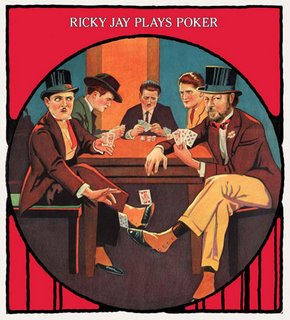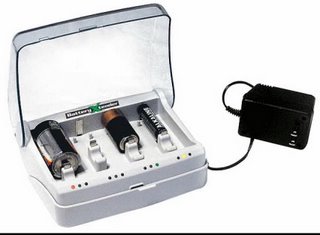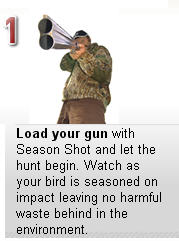So, in the paper today there's a brief obit about Google Answers, which is shutting down at the beginning of the year, although the answer archives are apparently going to be left up indefinitely. And if you go to those archives and put in rico-ga (or just click on the link to your left), you'll get to an archive of the 73 -1 answers provided by yours truly from around mid-May '02 to Feb '03.
If you know me or have read the blog long enough, you know the story already. The company I had worked for over the preceding 10 years closed its doors in late 2001, leaving me out on the street and with two weeks of severance for those 10 years. After several months of unemployment, I found a new job that I was supremely unhappy in. Fate, or the Muses, or maybe my Fairy Godmother, decided to lend a hand, and that company sacked me - as well as several dozen others, including their CEO - after I had been there just a month. Ironically, between the signing bonus, salary, and severance, I received more parting money for one month's employment there than I had from the other company for 10 years.
The second company went out of business a few months later.
The experience left me with an epiphany, as well as some money, the gist of it being that being a good boy and playing the game wasn't working, and I needed a new game. So, I started exploring alternatives to traditional go-to-work work. Happily, I had a wife who agreed and was willing to back my play.
I did several things until I settled back into contract work. And now I write, podcast, and blog for money. Sometimes I have several clients, sometimes I have lean periods. Occasionally, I end up out of work for awhile. But it's a pretty good life all-in-all.
As I said, while I was building that life, I tried my hand at several things, one of which was being a Google Answers Researcher, or GAR as we eventually became known. Based on the payment schedule I knew that Google Answers wasn't going to provide me with a living. I think the most I made from it in any one month was $200 $600 (according to my bookkeeper). But, my life and confidence had been pretty well shattered at that point. I wanted to do something - anything - to prove to myself I could still earn money. And for that, Google Answers was good for me.
Except for helping me get back some self-confidence and a blanket that Google sent as a Christmas gift, and which Peggy still uses, there's little else that I remember fondly about Google Answers. As is noted in the engineers/project managers closing statement below, it was one of the first new projects spawned out of the Googleplex, and it was pretty obvious that - except in a technical sense - the then-anonymous "Google Answers Team," didn't have a clue about what they were doing, especially about how to manage contractors.
Poorly conceived, poorly executed, and even more poorly managed,* much bothered and annoyed me about working for Google Answers. There was the near-paranoid obsession with secrecy to the point that researchers were dismissed if they talked/wrote about their work publicly. The management anonymity - researchers would get email from management under the blanket "Google Answers Team" title and during the year I worked for Google I never knew the name of one member of the "Google Answers Team." The arbitrary and inconsistent decision-making. You'd have answers pulled, restored, and pulled again dependent on which of the "Google Answers Team" was monitoring the work, sometimes with an explanation, often with only the reply that you had violated some ill-defined policy. One night in February, frustrated by a monitor who had decided to pull my answer for the third consecutive time with only boiler-plate explanations as to why, I sent an email advising what the entire Google Answers Team could collectively go do and resigned. I never regretted it.
There's some good memories too. One of my answers which was pulled by the ever-watchful Google Answers Team was to a question having the memorable title, "Have Small Cock, Need Small Rubber" I spent an entertaining half-hour searching the Web, learning more about prophylactics both for the over- as well as the under-endowed than I would probably ever have known otherwise. As I said, the GAT pulled the question shortly after I answered it, but did email my answer to the customer, who in turn sent a happy acknowledgement.
Of course, I never got paid for that one, although as I remember the GAT congratulated me on my initiative.
There's some other ones still there I'm proud of. The source of an obscure poem. After dinner toasts for a newly married couple. A murder mystery that bothered me so much that I came back 6 months after my original answer with more information. A Kennedy assassination question. A sad question about a plane crash in 1958.
But that last, as some other questions did, also had me questioning what I was doing. It was pretty obvious that I wasn't providing the customer what she really wanted. All I could do was point to resources that might help her find more information. There were too many questions like that; questions that no one could answer.
Some of the customers were clueless about that, as well as apparently clueless about basic search techniques. And some of them were pretty rude and stupid-mean as well as clueless. But generally, they were pretty good, and appreciative of our efforts. The GARs, which officially numbered somewhere between 500-800, although probably less than 100 were actively answering questions at any given time, were also a pretty good group. Super-intelligent as you could expect. Interesting. Funny. A couple of turkeys in that bunch too, but less than your average on-line community.
So, goodbye Google Answers. I wish I could say that my short time with you was a pleasant experience. But it wasn't. But, you gave me an outlet - and some confidence - when I desperately needed it. And for that, thank you. Here's the notice from the Google blog...
Google is a company fueled by innovation, which to us means trying lots of new things all the time -- and sometimes it means reconsidering our goals for a product. Later this week, we will stop accepting new questions in Google Answers, the very first project we worked on here. The project started with a rough idea from Larry Page, and a small 4-person team turned it into reality in less than 4 months. For two new grads, it was a crash course in building a scalable product, responding to customer requests, and discovering what questions are on people's minds.*And a brief update: According to various postings by now-ex-GARs on the Web, things didn't improve over at GA after my departure. In fact, conditions gradually worsened until in the past few months portions of the system had broken and were left unrepaired by the "Google Answers Team," who obviously had already moved on to new challenges long before the official shutdown notice. The Google Answers Team, with the same charitable concern for the feelings of contractor GARs that they consistently demonstrated during my tenure, notified researchers through email sent a few hours before the official announcement... although apparently it wasn't a surprise to anyone who had been paying attention.
Google Answers taught us exactly how many tyrannosaurs are in a gallon of gasoline, why flies survive a good microwaving, and why you really shouldn't drink water emitted by your air conditioner. Even closer to home, we learned one afternoon that our building might be on fire.
The people who participated in Google Answers -- more than 800 of them over the years -- are a passionate group committed to helping people find the information they need, and we applaud them for sharing their incredible knowledge with everyone who wrote in.
If you have a chance, we encourage you to browse through the questions posted over the last 4+ years. Although we won't be accepting any new questions, the existing Qs and As are available. We'll stop accepting new Answers to questions by the end of the year.
Google Answers was a great experiment which provided us with a lot of material for developing future products to serve our users. We'll continue to look for new ways to improve the search experience and to connect people to the information they want.












